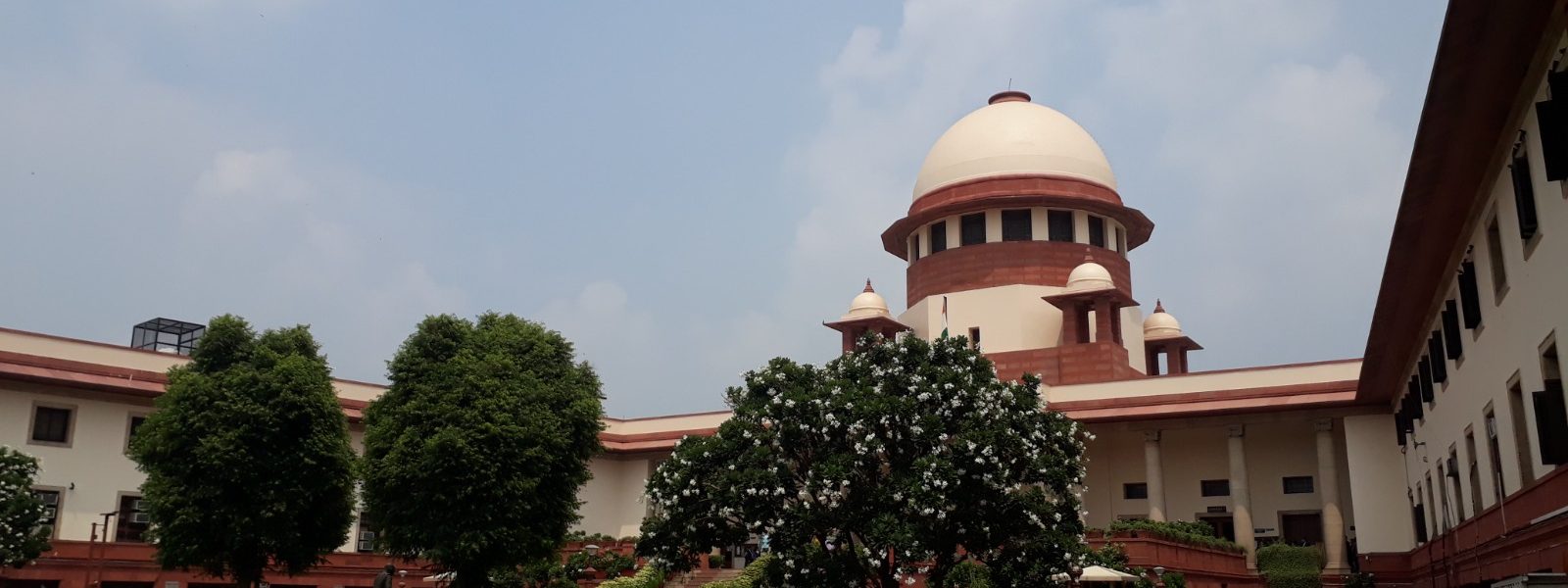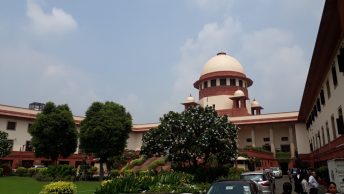The Conference concluded with a book discussion on “Of Law and Life: Upendra Baxi in Conversation with Arvind Narrain, Lawrence Liang, Sitharamam Kakarala and Sruti Chaganti”. The session comprised Mr. Arvind Narrain and Dr. Sitharaman Kakarala, two of the four interlocutors responsible for writing the book. Retired Supreme Court Judge, Justice S. Ravindra Bhat also attended the book discussion.
Speaker 1: Mr. Arvind Narrain (Independent Researcher)
Mr. Arvind Narrain highlighted the unique character of the book. He classified the book as neither a biography nor an autobiography. In his words, it was simply the product of conversations with Baxi spanning over sixteen years. The book highlights the nuances of the written and spoken versions of Baxi, providing an internal dimension to Baxi.
Mr. Narrain recalled Baxi’s belief in self-transformation through reading. This belief was elaborated by providing examples of Baxi being transformed after reading the likes of Marx, Gandhi, and Ambedkar. Mr. Narrain also emphasized Baxi’s sense of humour in an attempt to humanize the larger-than-life legal luminary. Baxi’s humor, in the words of Narrain, stemmed from the way he approached life itself. This humor is what allowed Baxi to come out with hope and optimism through some of the darkest events he lived through.
On this aspect, Mr. Narrain further quoted Hannah Ren’s ‘Men in Dark Times’, “Sometimes even in the darkest of times, we have the right to expect some illumination”, expanding on the need for hope and optimism in one’s life. This illumination may not always come from facts and circumstances but from the people around you. In this regard, he contrasted between the notions of ‘pessimism of the intellect and the optimism of the will’.
In his concluding remarks, Mr. Narrain shared how readers ought to be interacting with his book. The first, was to read the book, and second, was for the readers to interact with Baxi’s work as there truly is no area of Indian Law that Professor Upendra Baxi has not written on.
Speaker 2: Dr. Sitharaman Kakarala (Azim Premji University)
Dr. Sitharaman Kakarala served as the second speaker in the book discussion. He described Baxi as, “a wordsmith in the business of writing for the last sixty years”. He recalled Baxi’s first work, “Little Done and Vast Undone” – a commentary of Granville Austin’s “The Indian Constitution: Cornerstone of a Nation”. He provides this work of Baxi to mark the beginning of his reflection from Baxi’s words.
Dr. Kakarala describes the book as being something more than a life story, and more than knowing the person and the scholar that Baxi is. The book, according to him, is an appeal to capture the connection between Baxi’s emotional self and his writing as a scholar and an activist. He drew comparisons to Albie Sachs’, “The Strange Alchemy of Law and Life”, in discussing the inner experience of law, and the connection between reasoned outcome and the emotional self of a judge. This was the context in which the current book in discussion was written.
He also spoke of the importance of never taking a word said at face value. He describes these conversations with Baxi as “gentle interrogations”. He further highlighted the importance of history, quoting a private conversation with Ramchandra Guha, who noted that India has a very thin institutional history. According to Dr. Kakarala, apart from Baxi’s emotional self and reasoned articulation, there are not many sources of understanding the history of legal cultures in this country.
Dr. Kakarala concluded by observing that the book was neither a conventional nor a commissioned autobiography, nor was it oral history. Instead, it is a collection of conversations, in an effort to showcase the emotional life of Baxi, as his friends and interlocutors. Dr. Kakarala concludes by noting that his friendship with Baxi is the ultimate kind of privilege which shaped the book.
Written by: Mitansh Sheth
Edited by: Saranya Ravindran


